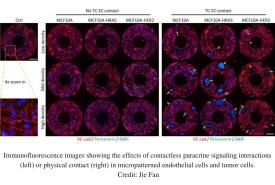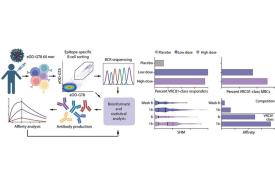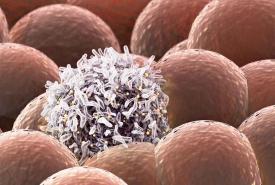Study Shows Promise of New Anti-KRAS Drug for Pancreatic Cancer
A small molecule inhibitor that attacks the difficult to target, cancer-causing gene mutation KRAS, found in nearly 30 percent of all human tumors, successfully shrunk tumors or stopped cancer growth in preclinical models of pancreatic cancer, researchers from Penn Medicine’s Abramson Cancer Center showed, suggesting the drug is a strong candidate for clinical trials. The study was published today in Cancer Discovery, a journal of the American Association for Cancer Research.


















